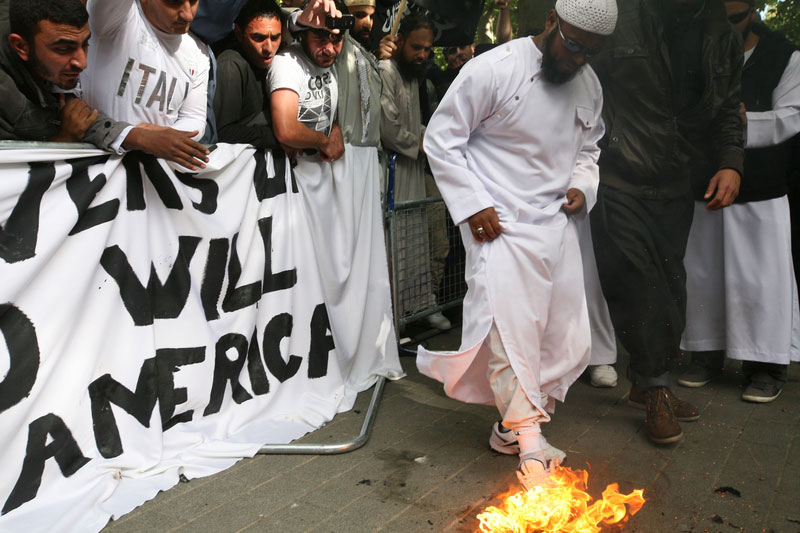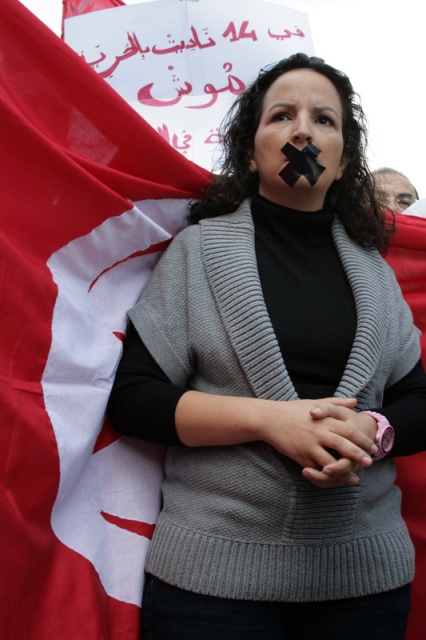14 Jan 2013 | Uncategorized
There has been a hell of a lot written in the past week or so since the New Statesman published feminist writer Suzanne Moore’s article Seeing red: the power of female anger, and I really do not want to go over the details again. There’s more to be written on transgender issues by people with far better knowledge than I. Suffice to say, people got angry over a phrase in Moore’s piece, she was rather forcefully criticised, responded in kind, and gave up her Twitter account as the weight of group anger became too much. Then Julie Burchill further fanned the flames with a massively controversial article in the Observer.
What I want to briefly focus on here is the frankly disastrous response to the furore over Julie Burchill’s Observer article by International Development minister Lynne Featherstone. Weighing in to the twitter discussion on Sunday evening, Featherstone tweeted that Burchill should be sacked by the Observer, and subsequently implied agreement with another tweet suggesting that Observer editor John Mulholland should also be sacked.

Let’s leave aside for a moment the fact that Julie Burchill is not actually on staff at the Observer, and can’t be sacked, and examine just what’s happened here: a government minister in a modern democratic state has demanded that a journalist be punished for writing a contentious article. And then nodded along with the notion that a national newspaper editor be sacked for publishing a contentious article. An article that has not, as yet, been deemed illegal, or even in breach of the Press Complaints Commission code.
Featherstone has made a mockery of Britain and the EU’s declared commitment to promote free speech. Cast your mind back to the 2011 riots, when it was suggested that social networks be shut down to prevent people co-ordinating movements. The state media of regimes such as Iran and China gleefully reported this suggestion, using it both to mock the UK’s hypocrisy and to justify the censorship of their own people.
Now imagine the next time a newspaper such as China’s Southern Weekly steps out of line, and a senior Communist Party member calls for the head of a reporter or editor. Should a Foreign Office official even attempt to condemn such censorship, be in no doubt that the authorities in China will point to Featherstone’s intemperate tweet and say the UK is in no position to lecture.
There’s the international aspect. Now look at the domestic. Independent editor Chris Blackhurst has said he fears that politicians will use post-Leveson statute to “wreak their revenge” on the press. Speaking on Sky News, Blackhurst commented:
“Once a draft Bill goes into the Commons and the Lords and once they get their teeth into it they can add all sorts of amendments.
“That’s where the revenge will happen. That’s one reason why some of us are very keen that there should not be statute.
“It’s not just expenses, let’s not forget there are a lot of MPs, all sorts of shenanigans down the years, many of which we all know about and have been highlighted, and they can’t wait. They are sort of ‘bring it on’.”
Pro-statute campaigners such as Hugh Grant tell us that we should not be alarmed by the prospect of a new press law. But when, even before such a law is debated, a government minister thinks it’s OK to interfere with the press in this manner, why should we trust politicians with free speech?
9 Jan 2013 | Uncategorized
 Protests against The Innocence of Muslims at the US Embassy in London (Demotix)
Protests against The Innocence of Muslims at the US Embassy in London (Demotix)
This one sneaked under the radar before Christmas. On 6 December, UK parliamentarian Alex Cunningham, the Labour MP for Stockton North, tabled an “Early Day Motion” demanding that the British government ban the controversial anti-Islam film “The Innocence of Muslims”. The moved was backed by 14 other MPs — 11 Labour, two Liberal Democrats, and RESPECT’s George Galloway.
Here’s the text of the EDM in full:
That this House notes the anger of Muslim constituents in response to the online video, The Innocence of Muslims; is offended by the vile, Islamophobic slurs it makes about a faith followed by over two billion people worldwide; believes that the film constitutes incitement to hatred on the grounds of race and religion; further believes that the film itself is of appallingly poor quality; and urges the Government tomake provision for its banning.
Note the invocation of our friend Muslim anger; note the absurd generalisation of the feelings of “two billion people worldwide” — none of the 15 signatories is actually Muslim. Note the remark on the “poor quality” of the film, a classic censor’s gambit (“it’s rubbish anyway, so this doesn’t really count as censorship”), but one which also raises the question of whether they’d call for Innocence of Muslims to be banned if it was well made. All rather grim.
The signatories are listed below (source http://www.edms.org.uk). Is your MP part of this censorious set?
Alex Cunningham Stockton North (Labour)
Iain Wright Hartlepool (Labour)
Simon Danczuk Rochdale (Labour)
Ian Lavery Wansbeck (Labour)
Jim Dobbin Heywood and Middleton (Labour)
Andy McDonald Middlesborough, Labour
Ronnie Campbell Blyth Valley (Labour)
Sandra Osborne Ayr, Carrick and Cumnock (Labour)
Kelvin Hopkins Luton North (Labour)
Alan Meale Mansfield (Labour)
George Galloway Bradford West (Respect)
Andrew George St Ives (Liberal Democrat)
Mike Hancock Portsmouth South (Liberal Democrat)
Roger Godsiff Birmingham, Hall Green (Labour)
Mary Glindon North Tyneside (Labour)
Read more on The Innocence of Muslims:
A new argument for censorship? Padraig Reidy asks if this time is different from previous blasphemy rows
4 Jan 2013 | Middle East and North Africa, Tunisia
Free speech in Tunisia will continue to remain in jeopardy as a new year kicks off.
During the next few months, the National Constituent Assembly (NCA) is scheduled to adopt Tunisia’s new constitution. Last December, the NCA published a second draft constitution which guarantees the right to free speech and prohibits prior censorship. Yet a vague and repressive legal framework created by former President Zeine el-Abidin Ben Ali to silence dissident voices is still in place, and free speech advocates remain concerned over Islamist vows to criminalise blasphemy.

A woman protests against censorship, Tunis, October 2011. Wahida Sannene | Demotix
Although Ben Ali’s autocratic rule ended almost two years ago, his legacy remains on the books. Ben Ali-era laws represent a serious threat to free speech. Last year, the public prosecutor’s office used Article 121 (3) of the Tunisian Penal Code to take legal actions against Nessma TV boss Nabil Karoui over the broadcast of the animated film Persepolis and a newspaper director for publishing a nude photo. The article prohibits the distribution of publications “liable to cause harm to the public order or public morals”. As 2012 ended without any serious political will to amend or abolish this article and other anti-free speech laws, journalists, bloggers and artists risk facing more “public disorder” and “morality” charges.
Media executives and journalists’ unions expect that 2013 will bring an end to the legal void that characterises the audio-visual media landscape through the putting into effect decree-law 116, dated 2 November 2011. Implementing this decree would establish an independent body tasked with organising the audio-visual media landscape in a “pluralistic, democratic and transparent manner”.
Over the last year, street attacks on free speech in the name of religion increased dramatically. This trend is expected to continue in 2013, given a staggering level of impunity. Tunisia’s current government has always expressed its condemnation of violence and its commitment to guaranteeing free speech. Yet, every time free expression comes under attack, officials turn a blind eye to the perpetrators and blame the victims. When ultraconservative protesters attacked the Spring of Arts fair last June, the Minister of Culture rushed to blame the artists for attacking Tunisians’ sacred religious symbols and vowed to take legal action against the fair’s organisers.
Last August, the ruling Islamist Ennahdha Movement, which controls 40 per cent of parliamentary seats, vowed to “legally protect the sacred” and filed a blasphemy bill. The party has already agreed to drop an anti-blasphemy clause from the new constitution after negotiations with the other two parties in the ruling coalition, the Congress for the Republic and the Democratic Forum for Work and Liberties. Will the Islamists also abandon their plans to criminalise blasphemy?
3 Jan 2013 | Asia and Pacific, India
From journalists murdered for chasing stories of illegal mining to exploding packages delivered to newspaper offices, India battled with a range of free expression and censorship issues in 2012, a report released this week by media watchdog The Hoot shows.
Harassment in the form of stone-throwing, physical assault and even bullets was meted out to journalists exposing the underbelly of India, especially when reporting on cases of deep corruption by politicians.
The arts also saw censorship in the form of cancelled shows due to objections of themes such as homosexuality, and the much-publicised cancelled visit of Salman Rushdie to the Jaipur Literary Festival due to “security concerns”.
Section 66A of the IT Act 2000 also made headlines when ordinary citizens were arrested for criticising politicians on social media platforms, leading to massive public outrage.
Read the full report here
More on this story:
Salil Tripathi on why India must choose to defend free speech
The threat of colonial-era sedition laws



